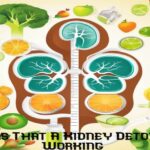Aphasia is a condition where people cannot read a word due to damage in the specialized regions in their brains. The most common cause of aphasia is stroke or head trauma, but we cannot determine the prevalence, but the global north has the highest rate of aphasia in stroke.
Aphasia may also result from brain diseases like dementia, brain infections, and brain tumors. In addition, emphasis can occur in the brain if one has been severely damaged in any aspect of speech or language after brain injury. Progressive aphasic symptoms have to be significantly lower within a short period.
Introduction
Aphasia is a neurological disorder affecting speech and language. It affects approximately 10% of stroke survivors and some people with traumatic brain injuries (TBI). Aphasia is an acquired communication disorder in which there are problems with both reception and expression of language due to lesions in specific brain areas. It results from injury or disease to one or more parts of your brain that are important for understanding and producing spoken or written language.
Different Types of Aphasia
It is essential to understand that aphasia is not just one single disorder, but it has different types. The different types of aphasia include fluent or Wernicke’s aphasia, nonfluent or Broca’s aphasia, and global aphasia. Each class is associated with specific symptoms. For example, there are comprehension problems in Wernicke’s aphasia, while in Broca’s aphasia, speech production becomes difficult. Global aphasia refers to loss of language skills, including reading and writing, and speaking and understanding language.
What Causes Aphasia?
Aphasia can occur due to damage to areas in or around your brain that help you communicate. Traumatic brain injury and stroke are often behind aphasia; however, they can also arise from tumors in or around your temporal lobe.
The part of your brain responsible for language, infections such as meningitis and encephalitis, Alzheimer’s disease and dementia, multiple sclerosis (MS), and other conditions.
Signs and Symptoms of Aphasia
Aphasia is a communication disorder caused by damage to language areas of your brain. Signs and symptoms of aphasia vary depending on which part of your brain is damage. If you have aphasia, it’s common to have trouble speaking and understanding language and writing and reading comprehension. Although symptoms may be subtle at first, they can also come on suddenly after a stroke or another type of injury.
- Alzheimer’s disease
- Aneurysms
- Brain surgery
- Brain tumors (including cancer)
- Cerebral hypoxia (brain damage from lack of oxygen)
- It Occurs in Concussion and traumatic brain injury
- Dementia and frontotemporal dementia
- Developmental disorders and congenital problems (conditions that you have when you’re born because of a problem while you developed in the womb)
- Epilepsy or seizures (mainly if these cause permanent brain damage)
- Genetic disorders (conditions you have at birth that you inherited from one or both parents, such as Wilson’s disease)
- Inflammation of your brain (encephalitis) from viral or bacterial infections or autoimmune conditions)
- Migraines (this effect is temporary)
- Radiation therapy or chemotherapy
- Toxins and poisons (such as carbon monoxide poisoning or heavy metal poisoning).
- Strokes or transient ischemic attacks (TIAs)
Patterns of Aphasia
People with aphasia may have different patterns of strengths and weaknesses.
Expressive aphasia. It is also called Broca’s or nonfluent aphasia. People with this pattern of aphasia may understand what other people say better than they can speak. People with this pattern of aphasia struggle to get words out, talk in concise sentences, and omit words. A person might say, “Want food” or “Walk park today.”
A listener can usually understand the meaning, but people with this aphasia pattern are often aware of their difficulty communicating and may get frustrated. They may also have right-sided paralysis or weakness.
Total aphasia. People with this pattern of aphasia (also called fluent or Wernicke’s aphasia) may speak easily and fluently in long, complex sentences that don’t make sense or include unrecognizable, incorrect, or unnecessary words. They usually don’t understand spoken language well and often don’t realize that others can’t understand them.
Global aphasia. This aphasia pattern is characterized by poor comprehension and difficulty forming words and sentences global aphasia results from extensive damage to the brain’s language networks. People with global aphasia have severe disabilities with expression and comprehension.
Diagnosis And Treatment of Aphasia
Aphasia is a language disorder is caused by injury to one or more parts of your brain. It’s distinguish by an inability to communicate despite being able to read and understand what you are reading. If you experience difficulties with communication after a stroke or other neurological condition, see your doctor for diagnosis and treatment options. This guide outlines the symptoms, causes, and treatment of aphasia.
How common is aphasia? According to Johns Hopkins Medicine, one in 10 people who have had strokes develops language impairment. The most common form of acquired aphasia occurs in 40 percent of patients; it usually lasts less than six months and often resolves on its own within that time frame.
Click here to read more about Parkinson’s Disease
How To Prevent Aphasia?
At first glance, aphasia may seem like a condition that cannot prevent. While it may not be entirely preventable, there are some things you can do to help prevent yourself from developing it. A significant cause of aphasia is stroke or brain injury, and these are things that are avoiding with adequate health care and following an anti-stroke diet. The most common type of stroke or brain injury is an ischemic stroke which occurs when blood flow to your brain is blocked.
Eat a balanced diet and maintain a healthy weight. Many conditions related to your circulatory and heart health, especially stroke, can damage areas of your brain, causing aphasia. Preventing stroke and similar diseases is crucial to avoiding aphasia from happening or reducing your risk of developing it.
Don’t ignore infections. Eye and ear infections need fast treatment. If these infections spread to your brain, they can become severe or even deadly, and they can cause brain damage that can lead to aphasia.
Wear safety equipment. Head injuries can cause brain damage that leads to aphasia. Whether you’re on the job or on your own time, using safety equipment can help you avoid a brain injury that can lead to aphasia. Examples of safety gear include helmets and seat belts (or other vehicle safety restraints).
Manage your health conditions. Managing chronic conditions can help prevent other conditions that can cause brain damage and aphasia. Examples of these kinds of chronic diseases include Type 2 diabetes, high blood pressure, epilepsy, and states that create a risk of a blood clot that could lead to a stroke.
What Can You Do if You Are Affected By It?
Aphasia is a type of language disorder that occurs when a person has damage to the language centers in their brain. The parts of your brain that control these functions if damaged and therefore cannot operate correctly, resulting in difficulty speaking or understanding speech. Speech therapy can help you cope with mild to moderate forms of aphasia. If your case is severe, there may be no cure available for you other than an assistive device or surgery.
Conclusion
Aphasia is a disorder that can make it challenging to communicate. The most common cause of aphasia is stroke. Because there are many different types of aphasia, you may find that you struggle to communicate in certain situations or with certain people. The best way to treat aphasia depends on your style and how severe it is. Although recovery from aphasic disorders can take some time, communication techniques like speech therapy and visual cues can help you regain your ability to talk effectively.










